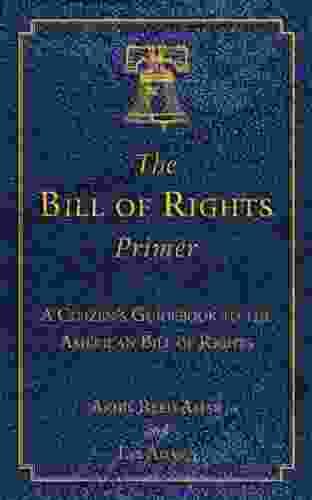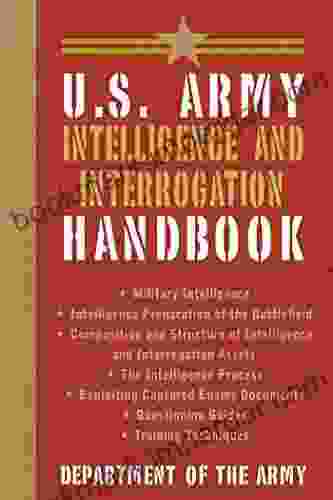Unveiling the Bill of Rights: A Comprehensive Primer for Understanding Your Fundamental Freedoms

The Bill of Rights, enshrined as the first ten amendments to the United States Constitution, stands as the bedrock of American liberties. These amendments, ratified in 1791, safeguard our most fundamental freedoms, ensuring that our government respects and protects the rights of its citizens.
4.6 out of 5
| Language | : | English |
| File size | : | 3164 KB |
| Text-to-Speech | : | Enabled |
| Screen Reader | : | Supported |
| Enhanced typesetting | : | Enabled |
| Word Wise | : | Enabled |
| Print length | : | 372 pages |
| Lending | : | Enabled |
This Bill of Rights Primer embarks on a comprehensive journey through each amendment, delving into its historical context, legal implications, and profound impact on our daily lives. By gaining a deeper understanding of these fundamental principles, we empower ourselves as citizens and uphold the very essence of American democracy.
First Amendment: Freedom of Speech, Religion, Press, Assembly, and Petition
The First Amendment embodies the core principles of a free and democratic society, guaranteeing our right to express our thoughts and ideas without fear of government censorship. It protects our freedom of religion, allowing us to practice our faith without coercion or interference from the state.
Furthermore, the First Amendment safeguards our right to gather peacefully, voice our grievances, and petition the government for redress. It ensures that our voices are heard and that our concerns are addressed, fostering an environment where open dialogue and dissent are not only tolerated but actively encouraged.
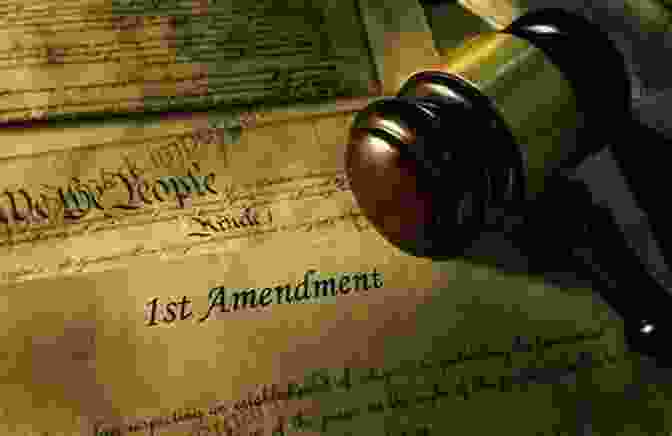
Second Amendment: Right to Bear Arms
The Second Amendment, often a subject of intense debate, guarantees the right of individuals to keep and bear arms. Originally intended to ensure that citizens could defend themselves and maintain a well-regulated militia, its interpretation has evolved over time.
Today, the Second Amendment remains a contentious issue, with ongoing discussions about gun control, self-defense, and the role of firearms in American society. Understanding the historical context and legal complexities surrounding the Second Amendment is crucial for engaging in informed debates on this complex topic.
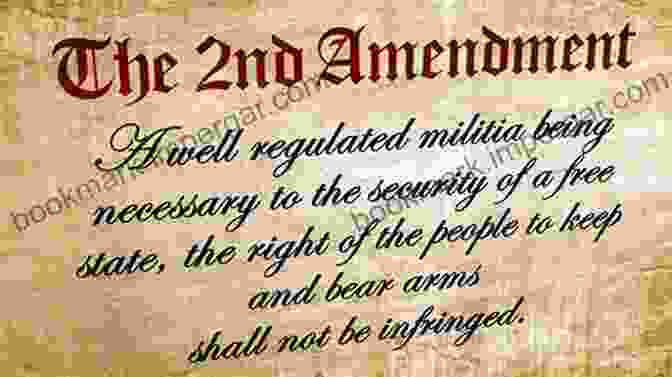
Fourth Amendment: Protection Against Unreasonable Searches and Seizures
The Fourth Amendment safeguards our privacy by prohibiting unreasonable searches and seizures. It ensures that law enforcement cannot arbitrarily enter our homes, vehicles, or property without a valid warrant supported by probable cause.
This amendment is essential for protecting our personal belongings, private communications, and the sanctity of our homes. It prevents the government from overreaching into our lives and ensures that our privacy is not violated without due process of law.
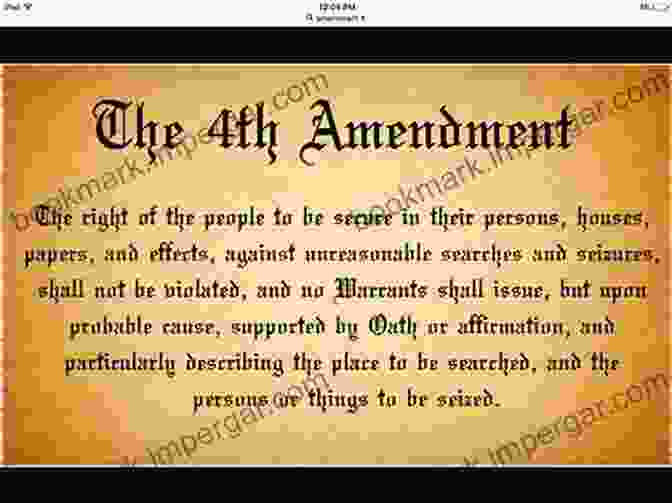
Fifth Amendment: Rights of the Accused
The Fifth Amendment establishes a series of crucial rights for individuals accused of crimes. It protects against self-incrimination, ensuring that no person can be compelled to testify against themselves in a criminal case.
Additionally, the Fifth Amendment guarantees the right to due process of law, which means that the government must follow established procedures when charging and prosecuting individuals. It also prohibits double jeopardy, preventing individuals from being tried twice for the same offense.
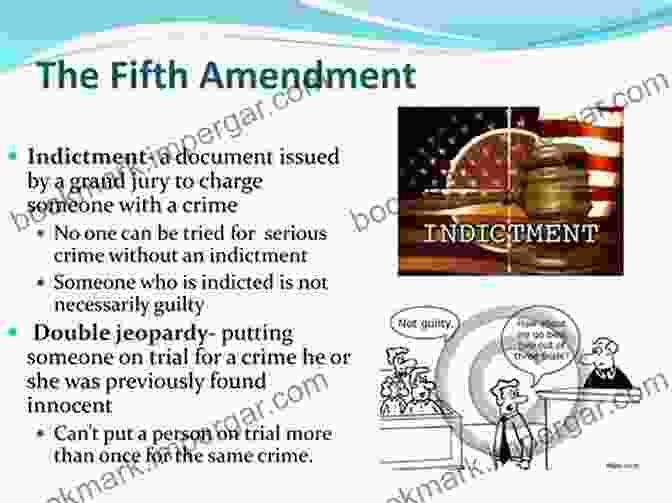
Sixth Amendment: Right to a Fair Trial
The Sixth Amendment ensures that individuals accused of crimes have the right to a fair and impartial trial. It guarantees the right to legal counsel, the right to confront witnesses against them, and the right to a jury trial.
These protections are fundamental to our justice system, ensuring that individuals are not unjustly convicted and that their rights are upheld throughout the legal process. The Sixth Amendment safeguards our right to a fair hearing and prevents the government from abusing its power.
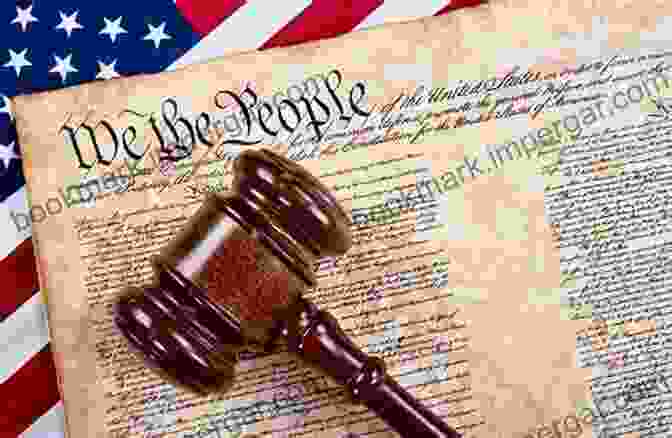
Seventh Amendment: Right to a Jury Trial in Civil Cases
The Seventh Amendment extends the right to a jury trial to civil cases where the amount in controversy exceeds a certain threshold. This amendment ensures that individuals can have their disputes resolved by a jury of their peers, rather than solely by a judge.
The Seventh Amendment is particularly important for protecting individuals from arbitrary or biased decisions by judges. It empowers citizens to participate in the legal process and ensures that justice is not solely determined by the whims of a single individual.
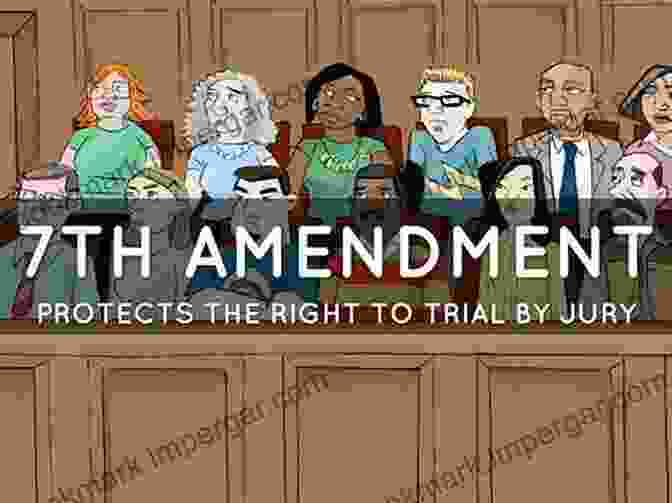
Eighth Amendment: Protection Against Excessive Bail, Fines, and Cruel and Unusual Punishment
The Eighth Amendment prohibits excessive bail, fines, and cruel and unusual punishment. It ensures that punishments are proportionate to the crime committed and that the government does not inflict barbaric or inhumane treatment on individuals.
This amendment is crucial for safeguarding human dignity and preventing the government from abusing its power. It sets limits on the severity of punishments and ensures that individuals are treated with respect, even when they have violated the law.
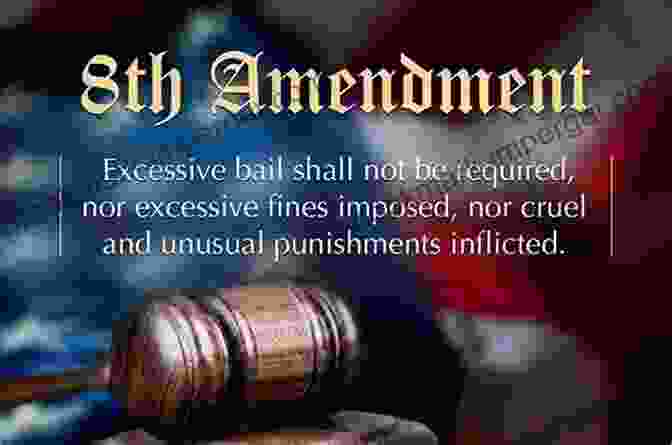
Ninth Amendment: Unenumerated Rights
The Ninth Amendment acknowledges that there are rights retained by the people that are not explicitly stated in the Constitution. It serves as a reminder that the Bill of Rights is not an exhaustive list of all our freedoms.
The Ninth Amendment ensures that our rights are not limited to those specifically mentioned in the Constitution. It empowers courts to interpret the Constitution in a manner that respects and protects the inherent rights of individuals.
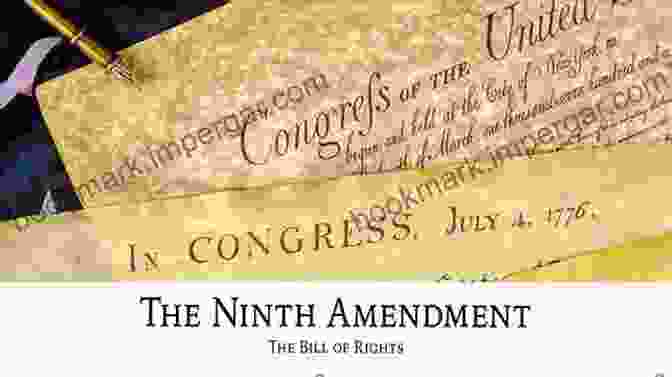
Tenth Amendment: Powers Reserved to the States or the People
The Tenth Amendment establishes that powers not delegated to the federal government by the Constitution are reserved to the states or the people. It ensures that the federal government does not overreach and that states retain significant authority within their jurisdictions.
The Tenth Amendment is fundamental to our federalist system of government. It prevents the federal government from becoming too powerful and ensures that states have the autonomy to address issues within their bFree Downloads.
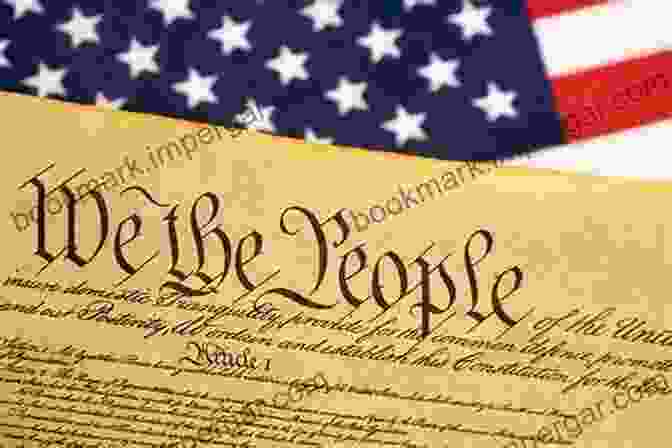
The Bill of Rights is the cornerstone of American liberties, guaranteeing our most fundamental freedoms and protecting us from government overreach. By understanding these amendments, we empower ourselves as citizens and uphold the very principles upon which our nation was founded.
The Bill of Rights Primer provides a comprehensive guide to each amendment, its historical context, legal implications, and profound impact on our daily lives. It is an indispensable resource for anyone seeking to deepen their understanding of the bedrock of American democracy.
Embrace the Bill of Rights, cherish your freedoms, and actively engage in the ongoing dialogue that shapes the future of our nation.
4.6 out of 5
| Language | : | English |
| File size | : | 3164 KB |
| Text-to-Speech | : | Enabled |
| Screen Reader | : | Supported |
| Enhanced typesetting | : | Enabled |
| Word Wise | : | Enabled |
| Print length | : | 372 pages |
| Lending | : | Enabled |
Do you want to contribute by writing guest posts on this blog?
Please contact us and send us a resume of previous articles that you have written.
 Book
Book Novel
Novel Page
Page Chapter
Chapter Text
Text Story
Story Genre
Genre Reader
Reader Library
Library Paperback
Paperback E-book
E-book Magazine
Magazine Newspaper
Newspaper Paragraph
Paragraph Sentence
Sentence Bookmark
Bookmark Shelf
Shelf Glossary
Glossary Bibliography
Bibliography Foreword
Foreword Preface
Preface Synopsis
Synopsis Annotation
Annotation Footnote
Footnote Manuscript
Manuscript Scroll
Scroll Codex
Codex Tome
Tome Bestseller
Bestseller Classics
Classics Library card
Library card Narrative
Narrative Biography
Biography Autobiography
Autobiography Memoir
Memoir Reference
Reference Encyclopedia
Encyclopedia Ichiro Kawachi
Ichiro Kawachi Hunter Davies
Hunter Davies Howard P Boyd
Howard P Boyd Yei Theodora Ozaki
Yei Theodora Ozaki Howla Jardali
Howla Jardali Isabelle Prigent Chesnel
Isabelle Prigent Chesnel J C Drummond
J C Drummond Israel Shahak
Israel Shahak Isabel Ashdown
Isabel Ashdown J Barton Cunningham
J Barton Cunningham Don Barlow
Don Barlow Jacob Tobia
Jacob Tobia Jack D Forbes
Jack D Forbes Jacob Darwin Hamblin
Jacob Darwin Hamblin Hugh Barker
Hugh Barker Laura Tunbridge
Laura Tunbridge Irena Kossakowski
Irena Kossakowski Michael E Peterson
Michael E Peterson Ray Kipling
Ray Kipling I Zelikovic
I Zelikovic
Light bulbAdvertise smarter! Our strategic ad space ensures maximum exposure. Reserve your spot today!

 DeShawn PowellUnveiling the Secrets of Behavioral Neuroendocrinology: A Comprehensive Guide...
DeShawn PowellUnveiling the Secrets of Behavioral Neuroendocrinology: A Comprehensive Guide...
 Roald DahlUnveiling the Darkness: "Another 150 Serial Killer Files of the World's Worst...
Roald DahlUnveiling the Darkness: "Another 150 Serial Killer Files of the World's Worst... Angelo WardFollow ·4.1k
Angelo WardFollow ·4.1k Gavin MitchellFollow ·16.4k
Gavin MitchellFollow ·16.4k Billy FosterFollow ·18k
Billy FosterFollow ·18k Felix CarterFollow ·15.3k
Felix CarterFollow ·15.3k Fyodor DostoevskyFollow ·18.3k
Fyodor DostoevskyFollow ·18.3k Demetrius CarterFollow ·15.7k
Demetrius CarterFollow ·15.7k Ernest J. GainesFollow ·14.9k
Ernest J. GainesFollow ·14.9k Tom ClancyFollow ·18.8k
Tom ClancyFollow ·18.8k

 Mike Hayes
Mike HayesUnlock Your Nonprofit Potential: A Comprehensive Guide to...
: Embarking on the Path to Impactful...

 Cody Russell
Cody RussellUnlock the Secrets of Captivating Radio Programming:...
In the fiercely competitive world of...

 Aron Cox
Aron CoxUnveiling the Enchanting World of Beth Inspired Eye...
A Realm of Imagination and Wonder Embark on...
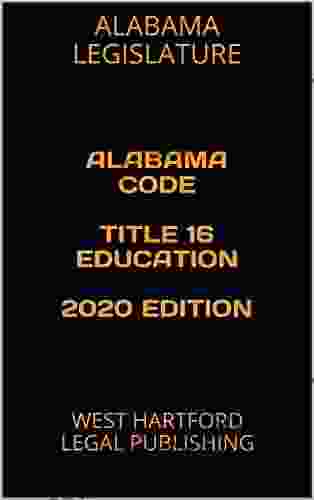
 Felix Carter
Felix CarterUnlock the Secrets of Legal Publishing with West Hartford...
West Hartford Legal Publishing, the renowned...

 Henry Hayes
Henry HayesUnveiling the Secrets of the Panama Papers: Exposing...
The Panama Papers is a groundbreaking...
4.6 out of 5
| Language | : | English |
| File size | : | 3164 KB |
| Text-to-Speech | : | Enabled |
| Screen Reader | : | Supported |
| Enhanced typesetting | : | Enabled |
| Word Wise | : | Enabled |
| Print length | : | 372 pages |
| Lending | : | Enabled |


